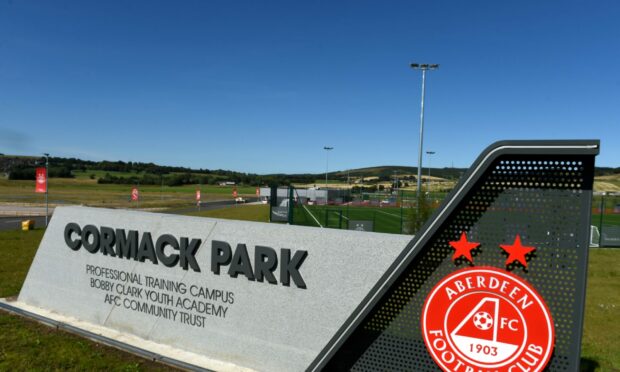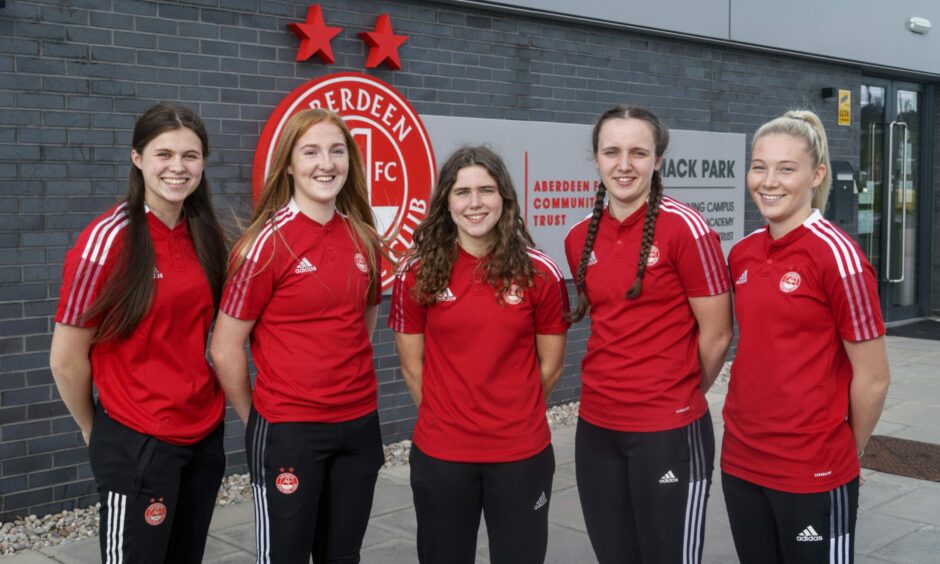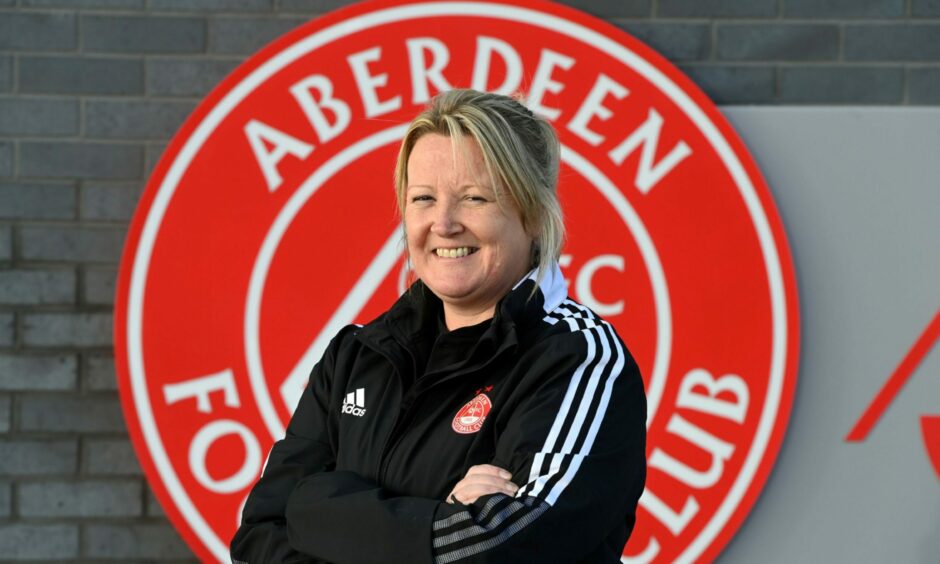With only five Aberdeen Women players on semi-professional contracts, it begs the questions – how will it work and what does it mean for the rest of the squad?
Aberdeen academy director Gavin Levey, who also oversees the women’s team, spoke to The Press and Journal to explain how the club will operate on a day-to-day basis next season, and what that means for the players.
The players who are semi-pro will have to attend three mandatory training sessions at Cormack Park, upped from two, and will be provided with gym passes so they can fulfill a strength and conditioning programme which fits around their education or work schedules.
All of the women’s players – semi-professional or not – will have access to the same resources, facilities, and training sessions, but the difference is that all extras for next season, will be mandatory for the players who are being paid.
‘We want to push the full squad on’
Aberdeen had always hoped to increase the number of training sessions, which they tried last season without success, but with three first-team coaches now in post, Levey says the club are better equipped to deliver more.
He explained: “Claire Garett came in as a third first-team coach in November last year, and that was always in mind with us increasing training time this year.
“We tried to do that last season with one additional session but it didn’t really materialise because it didn’t fit into everyone’s schedules.
“What we’ve done this year is we’ve asked the semi-professional players when would best accommodate their schedule, but also bearing in mind when will accommodate the rest of the squad.
“It’s important that we try and keep everyone together as much as possible. It’ll allow everyone the chance to train three nights a week – not just the semi-pro players – but everybody, if they’re available.”
While the semi-pro players have a financial incentive, Dons co-boss Emma Hunter said that it’s vital that the entire team will benefit from the changes that are being implemented.
The move to semi-professional football might start with putting a selection of players on paid contracts, but that can only be successful long-term, if the whole team are provided with the chance to develop.
Hunter explained: “There would be no point investing heavily in those five players and they start to excel and go away from the rest, you have to try and take the rest of the group with them.
“That’s what is important for us as a group – we want to push the full squad on.”
How to manage a squad where some are being paid – but most are not?
But with only five players on paid contracts, how do the other players feel that some of their teammates are being paid to play when they are not? It’s a challenge that Levey expected the club to have to navigate.
When Aberdeen were in the process of going semi-pro, Levey says he asked other women’s teams in Scotland whether this kind of situation has an effect on the dressing room.
His conclusion was that potential animosity between teammates could be just one of many challenges he expects the Dons’ management staff to have to deal with next season.
Levey said: “That’s the task that the management are well aware of, and how to manage this situation. When we first started speaking about this naturally it comes with real excitement and enthusiasm, but with anything like this there’s always going to be challenges.”
He believes that it is possible to reduce the chances of such a situation. Levey says the co-managers role will be vital, as they have to ensure that every player fully understands their role at the club.
He added: “They [the managers] have to make sure they manage expectations and that’s difficult as well. We speak about that with all our staff at Aberdeen, and it’s so important that we’re upfront with players so they know where they stand.
“That’s going to remain the case and I’m sure this season won’t come without its challenges. It’s something we’ve never done before and we face challenges internally behind-the-scenes regularly with things that are new to us.”
Aberdeen co-boss Hunter isn’t intimidated by such a challenge and is instead embracing the opportunity to test her player-management skills.
She added: “It doesn’t come without its challenges, like any walk of life. But that’s what you like as a manager, I love those challenges.
“That’s great if someone is outperforming someone else – how do I get the best out of the player who isn’t performing?”
Performances could earn players a semi-pro contract
If a player is excelling, Levey insists there will be opportunities for more players to become semi-professional, with the club not permanently set on having only the current five on contracts.
It might also mean that the club can offer potential signings a paid contract, but first and foremost, Levey insists that the club will look at internal talent and making sure their performances reflect what they are being offered.
Levey said: “If they can recruit someone or if someone within starts showing potential early in the season and the management team decide they want to secure them on a semi-pro contract and reward them with that – I’m sure that’s conversations they’ll be having.
“There is certainly scope for us to try and attract players but also, first and foremost, who do we have already that can go on and try and earn the right to become a semi-professional player.”


